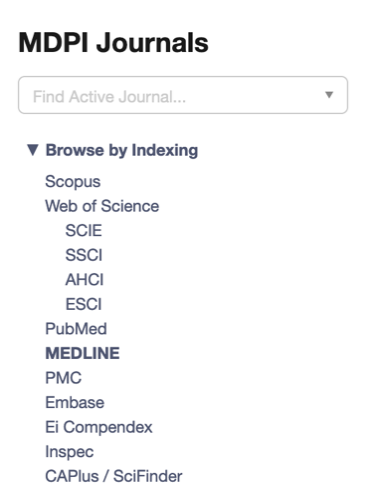
Journal Menu
► ▼ Journal Menu-
- Agronomy Home
- Aims & Scope
- Editorial Board
- Reviewer Board
- Topical Advisory Panel
- Instructions for Authors
- Special Issues
- Topics
- Sections & Collections
- Article Processing Charge
- Indexing & Archiving
- Editor’s Choice Articles
- Most Cited & Viewed
- Journal Statistics
- Journal History
- Journal Awards
- Society Collaborations
- Conferences
- Editorial Office
Journal Browser
► ▼ Journal BrowserNeed Help?
Announcements
25 September 2024
Topics Webinar | Reframing Strategies for a Low-Carbon Future in Agricultural Systems, 4 October 2024

This webinar, hosted by MDPI journals Agronomy (ISSN: 2073-4395), Climate (ISSN: 2225-1154), Crops (ISSN: 2673-7655), Grasses (ISSN: 2813-3463), Horticulturae (ISSN: 2311-7524), Land (ISSN: 2073-445X), and Plants (ISSN: 2223-7747), is open to all who enjoy conducting research on a variety of innovative strategies, such as precision agriculture, regenerative farming, and sustainable land management practices.
Our distinguished speakers will delve into the pivotal roles that diverse stakeholders play in shaping effective policy frameworks for a low-carbon transition in agriculture. By fostering collaboration among governments, farmers, and researchers, we can unlock pathways to a more sustainable and resilient food system that will serve not only our current needs but also those of future generations.
We encourage you to share any thought-provoking topics or speaker suggestions that could enhance our discussions and drive meaningful change in the agricultural sector.
Keywords: sustainability; climate change; agriculture; innovation; policy
Date: 4 October 2024 at 16:00 CEST | 10:00 EDT | 22:00 CST Asia
Webinar ID: 865 5083 9741
Register now for free!
Program:
|
Speaker/Presentation |
Time in CEST |
Time in CST Asia |
|
Dr. Ibrahim Khalil (Chair) |
16:00–16:10 |
22:00–22:10 |
|
Prof. Dr. Matt Bell |
16:10–16:30 |
22:10–22:30 |
|
Dr. Katja Klumpp |
16:30–16:50 |
22:30–22:50 |
|
Prof. Dr. Bruce Osborne |
16:50–17:10 |
22:50–23:10 |
|
Q&A Session |
17:10–17:25 |
23:10–23:25 |
|
Dr. Ibrahim Khalil (Chair) |
17:25–17:30 |
23:25–23:30 |
After registering, you will receive a confirmation email on how to join this webinar. Registrations with academic institutional email addresses will be prioritized.
Unable to attend? Register anyway, and we will let you know when the recording is available to view.
Webinar Chair and Keynote Speakers:
- Dr. Ibrahim Khalil (Chair), UCD School of Agriculture & Food Science, University College Dublin, Belfield, Ireland;
- Prof. Dr. Matt Bell, Department of Animal and Agriculture, Hartpury University, Hartpury, UK;
- Dr. Katja Klumpp, The Institut national de la recherche agronomique (INRAE), Clermont-Ferrand, France;
- Prof. Dr. Bruce Osborne, UCD School of Agriculture & Food Science, and Earth Institute, University College Dublin, Belfield, Ireland.
Relevant Topic:
“Reframing Strategies for a Low Carbon Future in Agricultural Systems”
Topic Editors: Dr. M. Ibrahim Khalil and Prof. Dr. Bruce Osborne
Abstract submission deadline: 31 October 2024
Manuscript submission deadline: 31 December 2024
For more information about this webinar, please visit the following link: https://sciforum.net/event/topics-27.
20 September 2024
Meet Us at the 7th International Conference on Biotic Plant Interactions, 13–17 October 2024, Hangzhou, China

Conference: The 7th International Conference on Biotic Plant Interactions
Date: 13–17 October 2024
Location: Hangzhou, China
MDPI will be an exhibitor at the 7th International Conference on Biotic Plant Interactions, which will be held from 13 to 17 of October 2024. We would therefore like to encourage researchers from different backgrounds to visit and share their latest ideas with us.
This conference is co-organized by the Center for Excellence in Molecular Plant Sciences, the Chinese Academy of Sciences, and Zhejiang University around the theme of Biotic Plant Interactions and Ecological Agriculture. This conference will gather around 800 scientists and students, sharing research advances covering a wide range of scientific topics. These will include, but are not limited to, cross-kingdom signal perception, immunity receptor and effector biochemical activity/function, plant–microbe–insect symbioses, plant–microbiome and microbe–microbe interactions, plant–insect–natural enemy multitrophic interactions, and new technologies and frontiers, including systems and spatial biology in plant–microbe interactions, plant metabolism and immunity, evolution of plant–insect–microbe interactions, emerging harmful organisms and agroecology, plant resistance, and crop molecular design.
The following MDPI journals will be represented:
- IJMS;
- Microorganisms;
- Plants;
- CIMB;
- Agronomy;
- BioTech;
- Ecologies;
- Insects;
- IJPB.
12 September 2024
Join Us at the International Conference Plants 2025: From Seeds to Food Security, 31 March–2 April 2025, Barcelona, Spain

We are thrilled to announce an international conference organized by Plants (ISSN: 2223-7747) to be held in Barcelona, Spain, from 31 March through 2 April 2025. This global event, under Plants 2025: From Seeds to Food Security, is significant, bringing together plant scientists worldwide to discuss and share their latest research and findings. The world population is expected to reach 9.7 billion by 2050, just 25 years from now. This calls for a more concerted effort by scientists to increase agricultural production to feed the growing population and maintain a sustainable agroecosystem while increasing crop yields and quality. In addition, preserving waterways from contamination due to the excessive use of agrochemicals (herbicides, pesticides and fertilizers) and maintaining and increasing forest cover are essential issues. This conference addresses these topics through keynote talks and seven different sessions for presenting innovation and prospects for the future.
We will have seven main themes at this conference, where presenters can make their scientific discoveries known:
- Session 1: Plant responses to abiotic stress and climate change;
- Session 2: Plant–microbe interactions;
- Session 3: Emerging technologies in plant health;
- Session 4: Emerging technologies in plant breeding;
- Session 5: Emerging technologies in biotechnology and molecular research;
- Session 6: Seed technologies and seed enhancement;
- Session 7: Plant nutrition.
The conference organizers look forward to having experts in the field deliver keynote talks and invite other experts, postdoctoral scientists, graduate students, and anyone interested in plant research and innovation to attend this conference.
The conference will be held in Barcelona, a picturesque city where scientists from around the world can unwind and enjoy Spanish culture, food and the seaside. We, the conference chairs, look forward to welcoming you to Plants 2025.
Prof. Dr. Dilantha Fernando, Editor-in-Chief of Plants
Prof. Dr. Fermin Morales, Section Editor-in-Chief of Plants
Prof. Dr. Oscar Vicente, Section Editor-in-Chief of Plants
11 September 2024
MDPI’s 2023 Best PhD Thesis Awards—Winners Announced

MDPI’s Best PhD Thesis Awards are granted to promising young scholars whose PhD theses are deemed exceptional within their respective research fields. These awards aim to encourage young scholars to continue their outstanding accomplishments and further contribute to their field.
We extend our heartfelt congratulations to the 54 winners of the 2023 Best PhD Thesis Awards and wish them success with their future research endeavors.
MDPI will continue to provide support and recognition to the academic community. To learn more about all the awardees and their research projects in your field of study, please visit the following pages:
About MDPI Awards:
To reward the academic community, especially young researchers, and enhance communication among scientists, MDPI journals regularly offer various awards to researchers in specific fields. These awards, serving as a source of inspiration and recognition, help raise the influence of talented individuals who have been credited with outstanding achievements and are making a significant contribution to the advancement of their fields.
To explore more MDPI awards, please click here.
3 September 2024
MDPI INSIGHTS: The CEO's Letter #15 - CHORUS, Best Paper Award, August Events

Welcome to the MDPI Insights: The CEO's Letter.
In these monthly letters, I will showcase two key aspects of our work at MDPI: our commitment to empowering researchers and our determination to facilitating open scientific exchange.
Opening Thoughts

I am pleased to share that MDPI is now an Affiliate Member of CHORUS, a not-for-profit organization dedicated to ensuring public access to articles reporting on U.S. government-funded research. This partnership highlights our long-standing commitment to advancing Open Access (OA) publishing and meeting funders’ open research requirements.
Read the full announcement here.
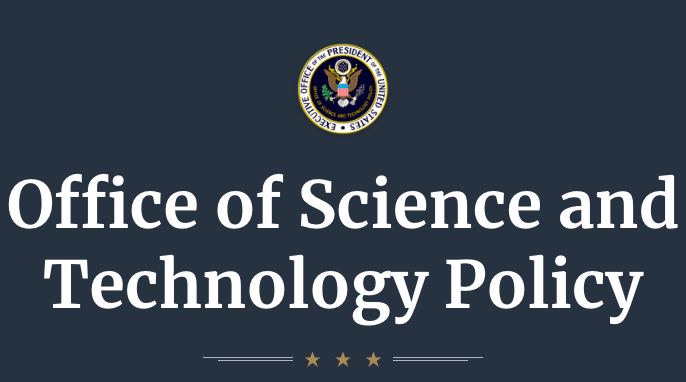
With the White House Office of Science and Technology Policy (OSTP) 2022 memorandum calling for immediate public access to all federally funded research by 2026, this partnership positions MDPI to further support academic institutions in adhering to national mandates while providing authors with fully compliant (CC-BY) OA journals.
The CHORUS platform went live in July 2014 and includes NASA, the U.S. Department of Energy, the U.S. Department of Defense, the U.S. Geological Survey, and the National Science Foundation.
“This partnership positions MDPI to further support academic institutions in adhering to national mandates”
Joining CHORUS perfectly aligns our mission as the leading OA publisher, which is to drive transparency and innovation in scholarly publishing, with that of CHORUS itself, which is to advance Open Access research. It will also support MDPI publications from organizations such as NASA, with 1,200 research papers published by NASA-affiliated authors as at 31 August 2024.
Impactful Research
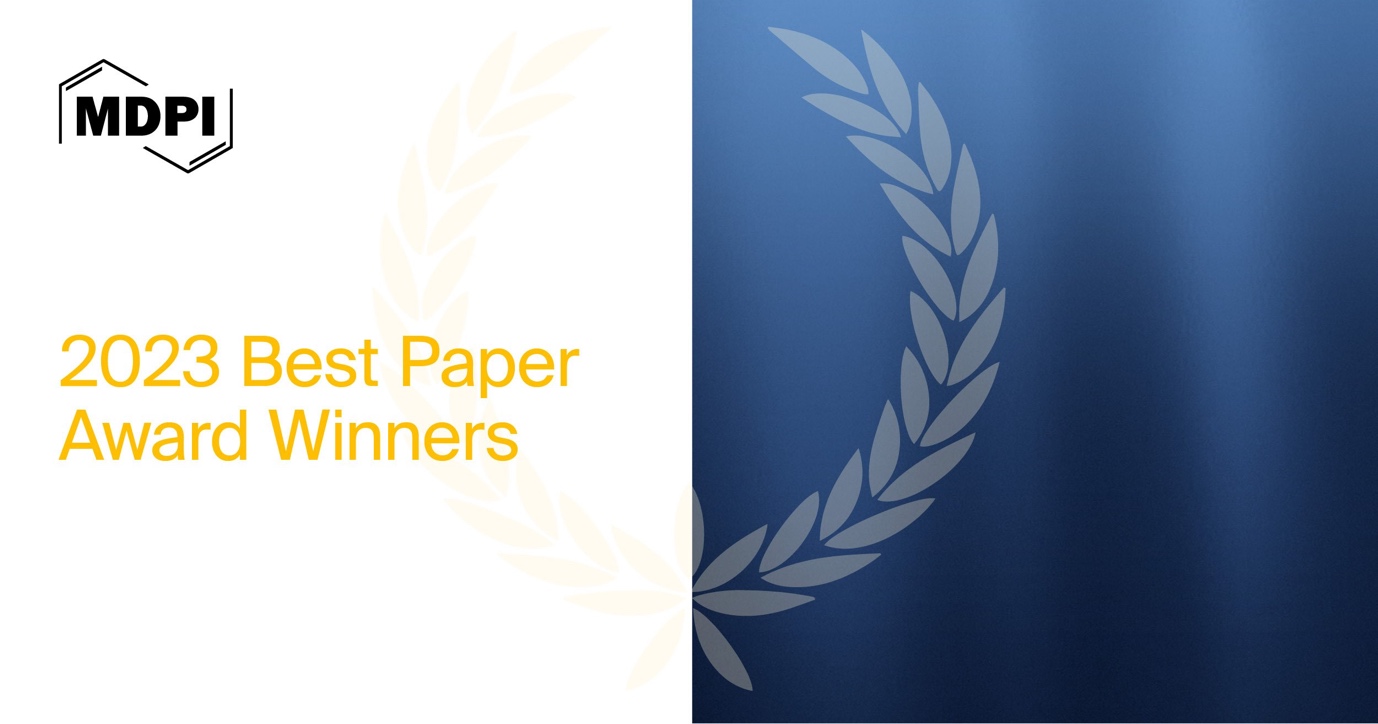
MDPI’s Best Paper Awards—Award-Winning Papers in 2023 Announced
MDPI is committed to supporting and recognizing the academic community and is proud to announce the recipients of the 2023 Best Paper Awards, which recognize high-quality papers of significant scientific merit and impact. Each year, the editors of our journals carefully select papers that showcase outstanding scientific achievement.
This year, 115 Best Paper Awards were presented, chosen from 346 exceptional papers in a highly competitive selection process. Congratulations to the authors for their remarkable contributions!
To learn more about all the awardees and their research projects, visit the following pages:
- Biology and Life Sciences
- Business and Economics
- Chemistry and Materials Sciences
- Computer Sciences and Mathematics
- Engineering
- Environmental and Earth Sciences
- Medicine and Pharmacology
- Public Health and Healthcare
- Social Sciences, Arts and Humanities
- Physical Sciences
About MDPI Awards
MDPI regularly offers various awards to recognize researchers, particularly young scientists, and to promote communication within the scientific community. These awards exist to inspire and acknowledge talented scientists who have made significant contributions to advancing their fields.
To find out more MDPI awards, please click here.
“Our awards exist to inspire and acknowledge talented scientists”
Inside MDPI

MDPI AI Team Presented at EuroSciPy 2024 in Poland
As part of the CEO Letter, I hold dear this ‘Inside MDPI’ section, where I have an opportunity to highlight various projects, teams and updates within our organization. As such, I’m happy to showcase the following presentations from members of MDPI’s Artificial Intelligence (AI) team, which were recently presented at the EuroSciPy 2024 (16th European Conference on Python in Science). This conference took place in Szczecin, Poland from 26–30 August.
“This event was a great opportunity to reinforce our commitment to innovation and excellence in publishing”
MDPI colleagues Frank Sauerburger (AI Tech Leader) and Daniele Raimondi (Senior Data Scientist) both presented at the conference. Frank discussed MDPI’s AI infrastructure, while Daniele showcased a new methodological approach we have been developing to track the journey of rejected academic manuscripts. This approach combines AI, data science and analytics to improve the identification of manuscripts and authors, enhancing our understanding of publishing dynamics.
This event was a great opportunity to reinforce our commitment to innovation and excellence in publishing. It also allowed us to contribute to the academic discussion on integrating AI and data science into scholarly communication.
From data analysis in Jupyter Notebooks to production applications: AI infrastructure at reasonable scale – Frank Sauerburger
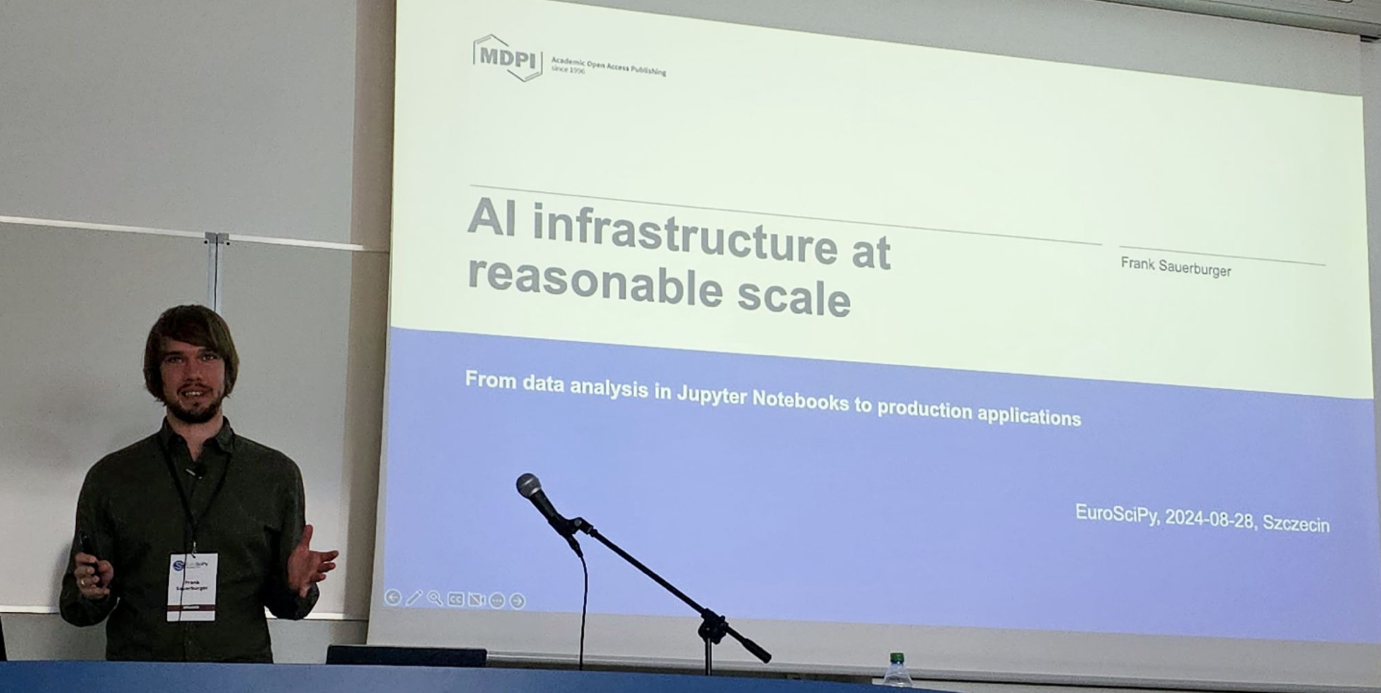
Frank’s presentation on MDPI’s AI infrastructure provided a chance to showcase the advanced technological frameworks that power our operations. Given the technical and academic focus of EuroSciPy, this talk demonstrated how MDPI’s AI capabilities are not only cutting-edge but also central to driving efficiency and innovation in scholarly publishing. Engaging with the EuroSciPy community helps position MDPI as a leader in applying AI within the publishing industry, fostering potential collaborations and attracting interest from top researchers.
A Qdrant and Specter2 framework for tracking resubmissions of rejected manuscripts in academia – Daniele Raimondi
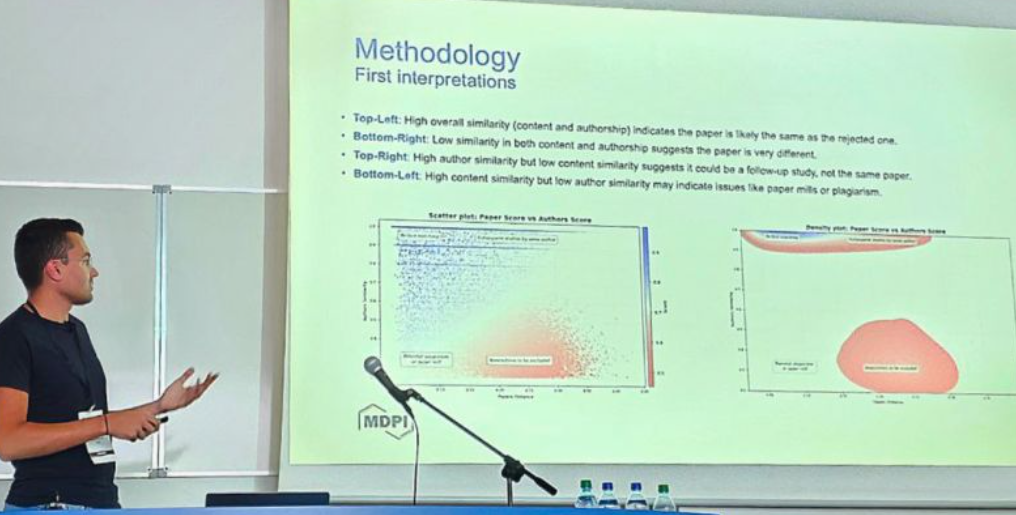
Daniele’s talk on the novel methodological approach that combines AI, Data Science, and Analytics was crucial in highlighting how MDPI is advancing the precision and effectiveness of manuscript and author identification. This approach is pivotal in enhancing our understanding of publishing dynamics and ensuring the quality and integrity of the academic content we manage. By presenting at EuroSciPy, we had the opportunity to engage with an audience deeply involved in scientific computing, gaining feedback and insights that could further refine our methodologies.
Thank you, Frank and Daniele, for representing MDPI so well!
I will share more about MDPI’s AI team and projects in upcoming CEO Letters, as we have a well-rounded AI and Data Team working on an exciting suite of AI products for MDPI and the scholarly community at large.
Coming Together for Science
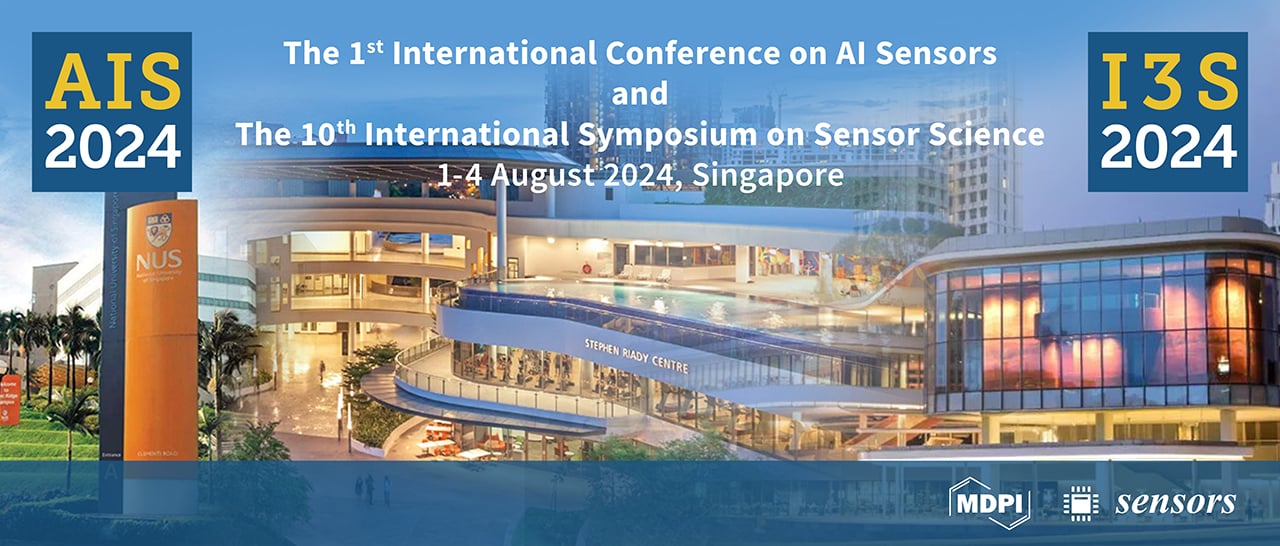
The 1st International Conference on AI Sensors & The 10th International Symposium on Sensor Science
I am pleased to share the success of our MDPI conference The 1st International Conference on Artificial Intelligence (AI) Sensors and the 10th International Symposium on Sensor Science in Singapore this past 1–4 August.
With nearly 400 attendees, the event brought together researchers and industry experts from China, Singapore, Japan, Korea, Taiwan, India and other countries to share their findings on the latest developments in sensors, sensing technology, artificial intelligence for sensing applications and AI-enhanced sensing systems.
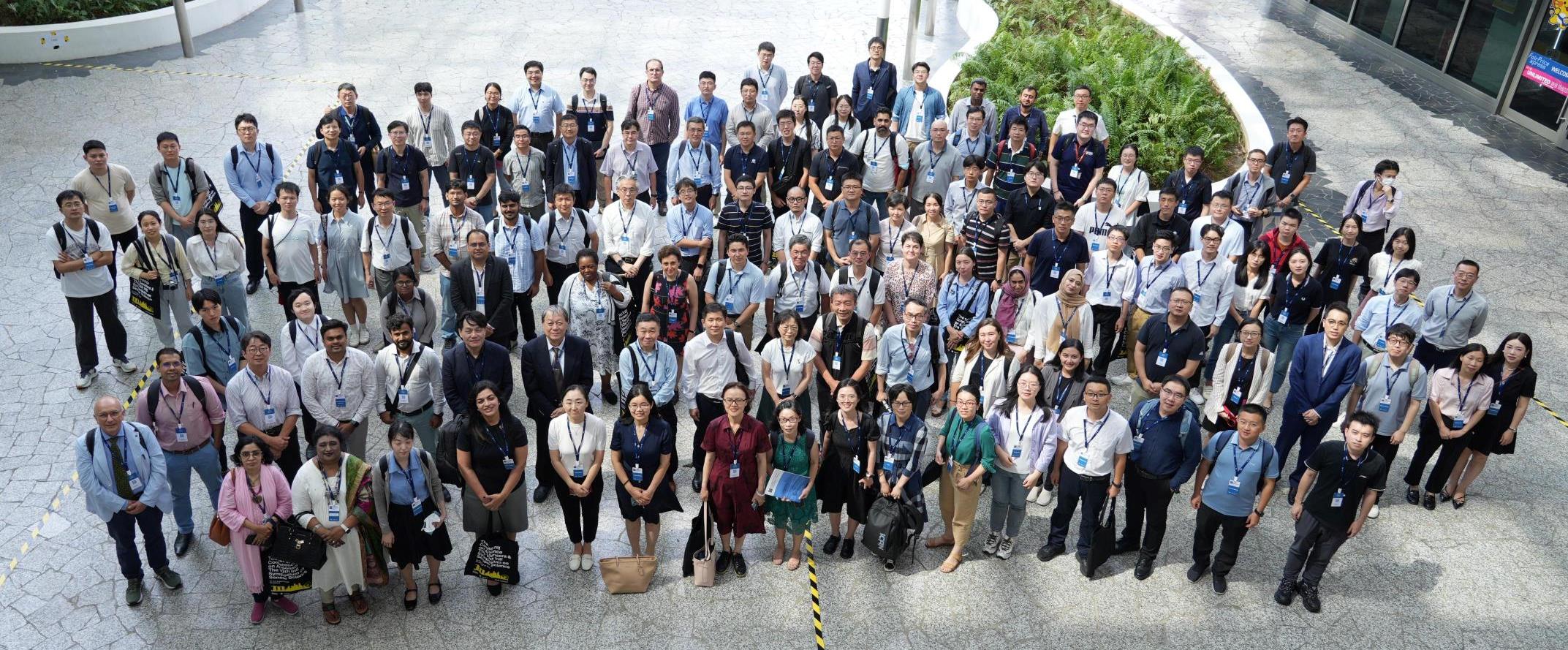
We accepted a total of 355 abstracts, featuring 772 authors from 28 countries. Over the course of the four-day event, 66 posters were displayed and 296 talks were delivered, including 4 plenary talks, 46 keynote speeches, 122 invited talks, and 124 selected oral presentations. View the event gallery here.
I am pleased to announce the winners of the four awards, including Best Presentation and Best Poster, recognizing the contributions of our participants during the conference.
Looking ahead, the 2nd International Conference on AI Sensors and Transducers is scheduled to take place from 29 July to 5 August, 2025, in Bangkok, Thailand.
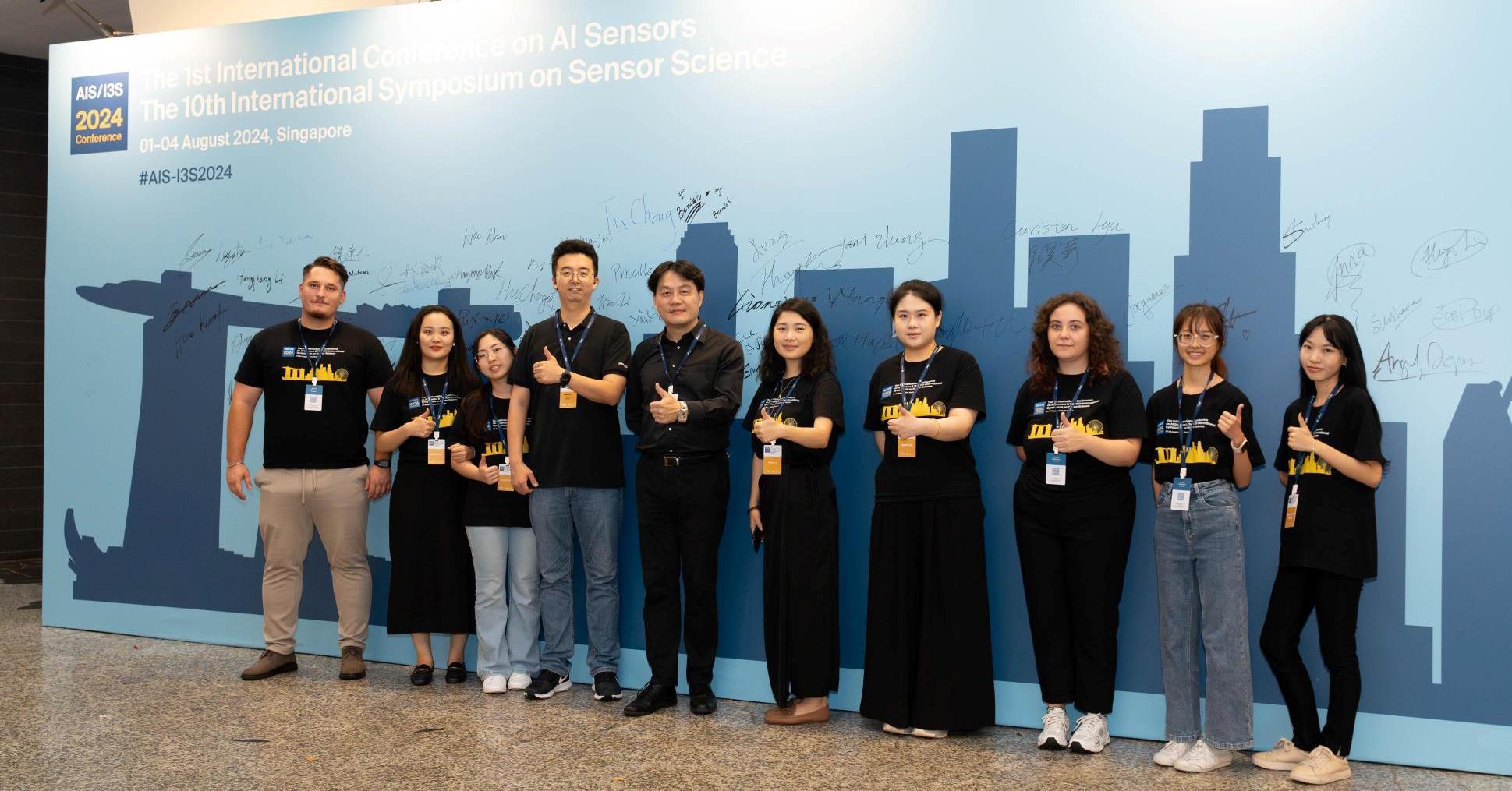
Thank you to our Conference team, including Ionut Spatar, Teodora Nicoleta Cremene, Ang Kai Lin, Benjamin Tay, Leong Jin Yue Esther, Wong Jolin, Judith Wu, Alethea Liu and Flora Li, who were involved in making this event a success. A big thank-you also goes to our local MDPI colleagues for their support: Yu Nwe Soe, Hen Chu Yang, Kwah Zhi En Watcharapong, Zephan Yang, Daphne Neo, Huimin Cheng, Nathan Li and Ting Yin.
Upcoming In-Person Event
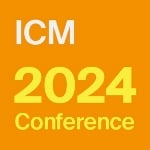
25–27 September, 2024
The 5th International Conference on Materials: Advances in Material Innovation
Location: Basel, Switzerland
ICM 2024 will unite experts to share insights on recent advancements in Materials Characterization, Processing and Manufacturing.
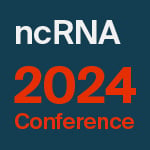
7–9 October, 2024
Non-coding RNA World 2024: Exploring Mechanisms, Designing Medicines
Location: Basel, Switzerland
ncRNA 2024 will explore the latest advances in the field, covering topics from basic biology to medical and technological applications.
Find more upcoming MDPI events here.
Closing Thoughts

The 2nd Sustainable Publishing Forum
In 2022, the International Association of Scientific, Technical and Medical Publishers (STM) outlined three goals to reflect the academic community’s shared aspirations: promoting Open Science, maintaining research integrity and fulfilling social responsibility. Open Science has evolved from the Open Access movement of the early 2000s to become a preferred model in academic publishing. Publishers and academic journals play a crucial role in ensuring research integrity, with efforts to prevent misconduct markedly on the increase now.
As the world faces sustainability challenges, the academic publishing industry is increasingly committed to contributing the achievement of the United Nations Sustainable Development Goals (SDGs). Many publishers are implementing strategies to support these objectives, including ours, which you can view here.
The 2nd MDPI Sustainable Publishing Forum provided a platform for global editors and publishers to discuss these themes, aiming to strengthen collaboration and advance the contributions that scientific publishing can make to academia and society.
“Open Science has evolved to become a preferred model in academic publishing”
The 2nd Sustainable Publishing Forum
We hosted MDPI’s 2nd Sustainable Publishing Forum in Beijing, China, on 15–16 August, attracting nearly 120 attendees from local and international publishers, university presses, scientific and technical journal associations, libraries and the Chinese Academy of Sciences. The event focused on promoting Open Science, maintaining research integrity, and fulfilling social responsibility.
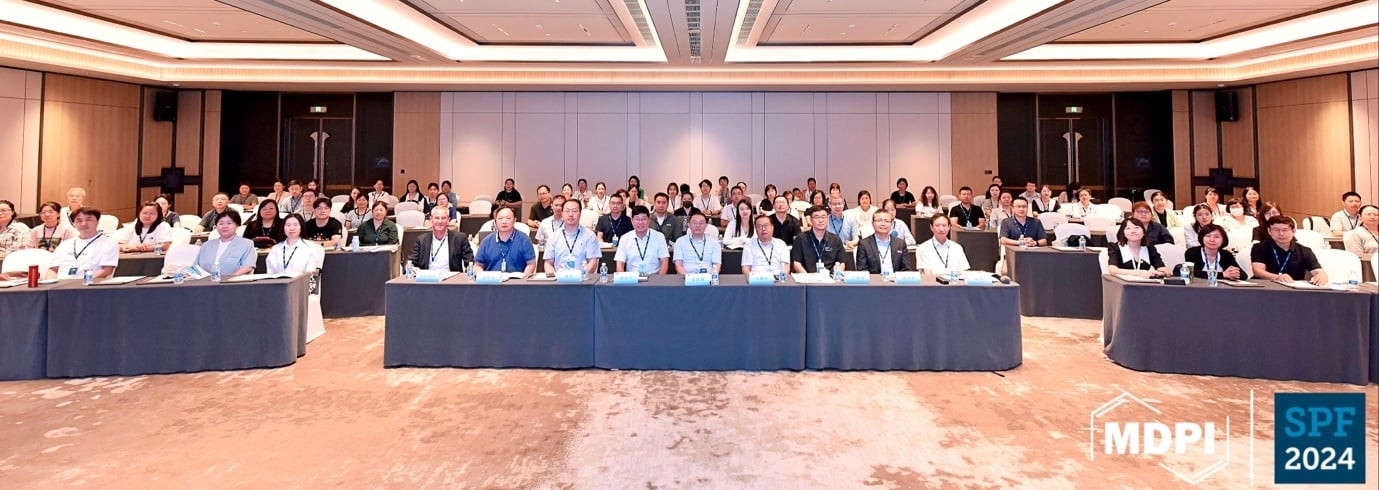
This was an excellent opportunity for us to share more with conference attendees about the approach of our research integrity team. Our Head of Publishing, Peter Roth, also participated, speaking on how to identify and avoid predatory publishers and about the principles that underpin ethical academic publishing.
I extend my thanks to all of our conference speakers, including Hylke Koers (STM Solutions), who presented on STM Trends 2028 and shared insights on the STM Integrity Hub, of which MDPI is a member.
Chief Executive Officer
MDPI AG
19 August 2024
MDPI’s 2023 Young Investigator Awards—Winners Announced

MDPI’s Young Investigator Awards recognize promising early career scientists, acknowledge their contributions, and foster collaboration within the scientific community. We are proud to announce the recipients for 2023, who were carefully selected by the journals’ esteemed Award Evaluation Committee.
We extend our heartfelt congratulations to the 79 winners of MDPI’s 2023 Young Investigator Awards for their excellent contributions in their research field. We look forward to seeing these rising stars continue to contribute to the advancement of science.
MDPI will continue to support and recognize the academic community. To explore details about the awardees by field, please visit the individual pages listed below:
Congratulations to all the winners for their exceptional contributions and dedication to advancing scientific research.
About MDPI Awards:
To support the academic community, particularly young researchers, and to enhance communication among scientists, MDPI journals regularly offer various awards to researchers in specific fields. These awards, serving as a source of inspiration and recognition, help to elevate the profiles of talented individuals who have made outstanding achievements and are making significant contributions to advancements in their respective fields.
To find out more about MDPI awards, please click here.
13 August 2024
Interview with Dr. Davide Raffaelli—Winner of the Agronomy 2024 Travel Award
We are pleased to announce the winner of the Agronomy 2024 Travel Award—Dr. Davide Raffaelli.

Name: Dr. Davide Raffaelli
Affiliation: Università Politecnica delle Marche, Italy
We would like to thank the award committee for selecting one winner from a large number of exceptional candidates, Dr. Davide Raffaelli. We will continue to reward scholars with the Travel Award to express our acknowledgment of their support for our journal Agronomy (ISSN: 2073-4395). We wish them every success in their careers.
The following is a short interview with Dr. Davide Raffaelli:
1. How did you become interested in your current area of research?
I’ve always loved agriculture since I was a child. With my Ph.D. project, I had the opportunity to step out of my comfort zone and tackle the crucial challenges connected to the abuse of water in the agricultural sector, which is the most urgent issue faced by our current rural economy.
2. What are the struggles that come with being an early career researcher?
As an early researcher, I found it challenging to find the funding to properly run experimental trials.
3. Could you describe any particularly interesting or unexpected results that you have discovered in your research so far?
The most meaningful result I’ve seen so far is that a proper analysis of the growing substrate (e.g., pF values) could help us optimize water usage during the cultivation process.
4. What is the most valuable lesson you have learned so far?
Currently, there is a lack of knowledge of “good agricultural practices”. Using modern devices, coupled with researchers’ interventions, will optimize this sector.
5. What is your motivation for research?
I’d like to adapt my scientific knowledge to “everyday life”, to refine the concept of “sustainability” in our society.
6. We hope that the travel award will open new opportunities for you. How does an Award like this one help to support the career of a young/early career researcher such as yourself?
These initiatives are so important for young researchers. The prize will help me to participate in international conferences and to publicize my results.
7. As a successful young investigator, what advice would you give to early career researchers who are just beginning their careers?
My suggestion is to visit other research groups. Creating new connections will help you deepen your understanding of your chosen research topic.
8. What qualities do you think young scientists need?
Passion, determination, an ability to interact with others, and open-mindedness.
9. What are your plans for the future, and how do you hope to build upon your current work?
My plan is to teach the younger generations. I would like also to help bring innovations to other sectors, like private companies.
10. As the winner of this award, would you like to take a moment to share your thoughts with the readers, or express gratitude towards those who have played a significant role in your research accomplishments?
I want to express my gratitude to my mentors: Prof. Bruno Mezzetti, Prof. Franco Capocasa, Prof. Luca Mazzoni, Prof. Silvia Sabbadini, and Dr. Francesca Balducci. Secondly, I want to extend my thanks to my colleagues, because they continuously present me with new ideas and challenges: Dr. Valeria Pergolotti, Dr. Federica Mecozzi, Dr. Micol Marcellini, Dr. Giammarco Giovanetti, Dr. Rohullah Qaderi, Dr. Luca Capriotti, Dr. Angela Ricci, Dr. Irene Piunti, and Dr. Maria Victoria Sunico. Finally, I would like to acknowledge the Agronomy Editorial Office for showing their appreciation of my work. I hope we can forge new collaborations in the future.
“Having a cohesive and stimulating working group is essential to conducting scientific research.”
13 August 2024
Interview with Dr. Maria K. Sakka—Winner of the Agronomy 2024 Travel Award
We are pleased to announce the winner of the Agronomy 2024 Travel Award—Dr. Maria K. Sakka.

Name: Dr. Maria K. Sakka
Affiliation: University of Thessaly, Greece
We would like to thank the award committee for selecting one winner from a large number of exceptional candidates, Dr. Maria K. Sakka. We will continue to reward scholars with the Travel Award to express our acknowledgment of their support for our journal Agronomy (ISSN: 2073-4395). We wish them every success in their careers.
The following is a short interview with Dr. Maria K. Sakka:
1. How did you become interested in your current area of research?
My undergraduate-level participation in entomology courses piqued my interest in the subject. As a result, I knew that for my master's studies, I wanted to work with insects. I finished my master's thesis on mosquitoes in the Laboratory of Entomology and Agricultural Zoology of the University of Thessaly under the supervision of Professor Christos Athanasiou. The completion of my master's gave me the motivation to continue my studies and earn a Ph.D., which led me to study stored-product insects. My main goal is to contribute to the knowledge of insects associated with economic damage in insect processing and storage areas, which is a challenging topic for me.
2. What are the struggles that come with being an early career researcher?
The challenges of an early career researcher are mostly related to funding issues and difficulty finding good mentorship. In particular, if you don’t have the second one you will be alone in an “ocean” of research issues that need to be handled.
3. Could you describe any particularly interesting or unexpected results that you have discovered in your research so far?
During my Ph.D. studies, we researched the phosphine resistance of different stored-product insect species. The interesting part of this research was that we collected more than 350 different stored-product insect species to use in our experiments. This was the largest variety of insect species collected for research purposes in any study I have participated in thus far.
4. What is the most valuable lesson you have learned so far?
On the research level, I would say that the most valuable lesson is to trust the process, put in the hard work and time, and enjoy every step until the final result.
5. What is your motivation for research?
I have grown passionate about stored-product insects, and it fascinates me to work in and contribute to this field. This research work and its processes have helped me to develop both as a scientist and as a person.
6. We hope that the travel award will open new opportunities for you. How does an award like this one help to support the career of a young/early career researcher such as yourself?
I would like to thank the award committee once again for selecting me as the winner of the Agronomy 2024 Travel Award! It is always very nice for your work to be acknowledged and to have the opportunity to participate in a conference and present the results of your research. The experience gained from such a procedure is vital and restores one’s motivation batteries for the next research endeavor.
7. As a successful young investigator, what advice would you give to early career researchers who are just beginning their careers?
For me, every study has its ups and downs, and you will learn valuable lessons from both. Move forward and stay focused.
8. What qualities do you think young scientists need?
Nothing more than a passion for their job!
9. What are your plans for the future, and how do you hope to build upon your current work?
Currently, I have a postdoc position at the University of Thessaly, Volos, Greece. I hope that in the future I will further contribute to the field of stored-product insect species and continue on this path.
10. As the winner of this award, would you like to take a moment to share your thoughts with our readers, or express gratitude towards those who have played a significant role in your research accomplishments?
Firstly, I want to say from my heart that I am happy about winning this award! Secondly, one person who played a significant role in my career is Professor Christos Athanassiou, and I would like to thank him for allowing me to work with him from my first career steps until now. Last but not least, thank you to my family for supporting and believing in me throughout my professional journey. Thank you all!
13 August 2024
Interview with Dr. Dariusz Gozdowski—Winner of the Agronomy 2023 Outstanding Reviewer Award
We are pleased to announce the winner of Agronomy 2023 Outstanding Reviewer Award—Dr. Dariusz Gozdowski.

Name: Dr. Dariusz Gozdowski
Affiliation: Department of Biometry, Warsaw University of Life Sciences, Warsaw, Poland
We would like to thank the award committee for selecting one winner from a large number of exceptional candidates, Dr. Dariusz Gozdowski. We will continue to reward scholars with the Outstanding Reviewer Award to express our acknowledgment of their support for our journal Agronomy (ISSN: 2073-4395). We wish them every success in their careers.
The following is a short interview with Dr. Dariusz Gozdowski:
1. How did you become interested in your current area of research?
In 1999, I graduated in agronomical studies, obtaining an M.Sc. in agronomy at Warsaw University of Life Sciences (Poland), and I decided to continue my education and begin my research as a Ph.D. student at the same university. I was always interested in research, not only in relation to agronomy but also in terms of data analysis. Curiosity about the world and the need to gain knowledge and learn new things caused me to engage in scientific research. Due to the fact that I come from a farm located in a small village, studying agronomy was a natural choice for me. In addition, I have always had developed mathematical abilities, which in turn meant that data analysis has always played a large role in my scientific development.
2. What are the struggles that come with being an early career researcher?One of the struggles I faced as an early career researcher was the very low scholarship salary during my Ph.D. studies. In general, a scientific career is usually very slow because it demands long-lasting experiments, especially in agronomical studies. Achieving scientific degrees and positions usually takes much more time in comparison to other types of jobs.
3. Could you describe any particularly interesting or unexpected results that you have discovered in your research so far?
One of the most interesting results I have observed is the detection of strong relationships between winter crop condition at early growth stages, in very early spring or even in late autumn, with grain yield. This was observed based on satellite-derived vegetation indices at a regional level for central Europe.
4. What is the most valuable lesson you have learned so far in your career?
A scientist should have limited trust in many things, including the experimental data they themselves have collected, as well as the results of other scientists—even those published in reputable journals. This allows for a critical approach to research and helps to avoid errors, including the repetition of previous errors, which sometimes happens in scientific research.
5. What is your motivation for research?
My motivation comes from developing my own knowledge and skills, developing my scientific career, and participating in interesting scientific projects which make my professional work more interesting and satisfying.
6. We hope that the Outstanding Reviewer Award will open new opportunities for you. How does an award like this one help to support the career of a researcher such as yourself?
This award provides motivation for greater involvement in the preparation of peer-reviewed scientific articles and shows an appreciation of one’s involvement in such work in the past. It increases researchers’ motivation to participate in scientific work, including in the peer-review processes.
7. As a successful researcher, what advice would you give to early career researchers who are just beginning their careers?
Scientific work requires patience because scientific development is usually slow and takes a lot of time. You should not expect to reach a very high scientific level in one or two years. It requires many small steps, but after many years the effects will be visible. It is important not to give up after various setbacks; for example, the rejection of a manuscript by a scientific journal or rejection of a scientific project application. Success will come sooner or later if we constantly strive for it and do not give up.
8. What qualities do you think young scientists need?
Most scientific activities require many skills and increasingly broad knowledge. For example, in the case of agronomic research, these may not only be things related to plant cultivation, plant physiology, and soil science, but also a range of skills related to data analysis and statistical analysis. In my case, knowledge of geographic information systems and the ability to analyze remote sensing data have also proven helpful. Recently, data analysis has become increasingly complex, often necessitating the use of AI techniques, and it is necessary to keep up with this.
9. What are your plans for the future, and how do you hope to build upon your current work?
A large part of my scientific work has always been statistical data analysis. Currently, increasingly advanced methods are being used for this purpose, including machine learning. This requires acquiring more and more knowledge and applying it in scientific research. It is difficult to precisely determine in what direction the development of AI in agronomy will go. It will probably include the use of AI to classify various plant pathogens, weeds, diseases and pests. Precision agriculture, which has been a significant research focus for many years, will become even more precise and will probably include diagnostics regarding plant conditions and very precise protection strategies. I think that my future research goals may be related to the increasing use of various AI techniques in data analysis and classification.
10. As the winner of this award, would you like to take a moment to share your thoughts with our readers, or express gratitude towards those who have played a significant role in your research accomplishments?
Scientific work has long required the cooperation of multidisciplinary teams. In my case, this is particularly relevant, as I work with many teams analyzing different data. Of course, each person from each team is very important, and on this occasion, I would like to thank everyone for their conflict-free and effective cooperation.
7 August 2024
MDPI Insights: The CEO's Letter #14 - New Headquarters, Marketing, Poland

Welcome to the MDPI Insights: The CEO's Letter.
In these monthly letters, I will showcase two key aspects of our work at MDPI: our commitment to empowering researchers and our determination to facilitating open scientific exchange.
Opening Thoughts
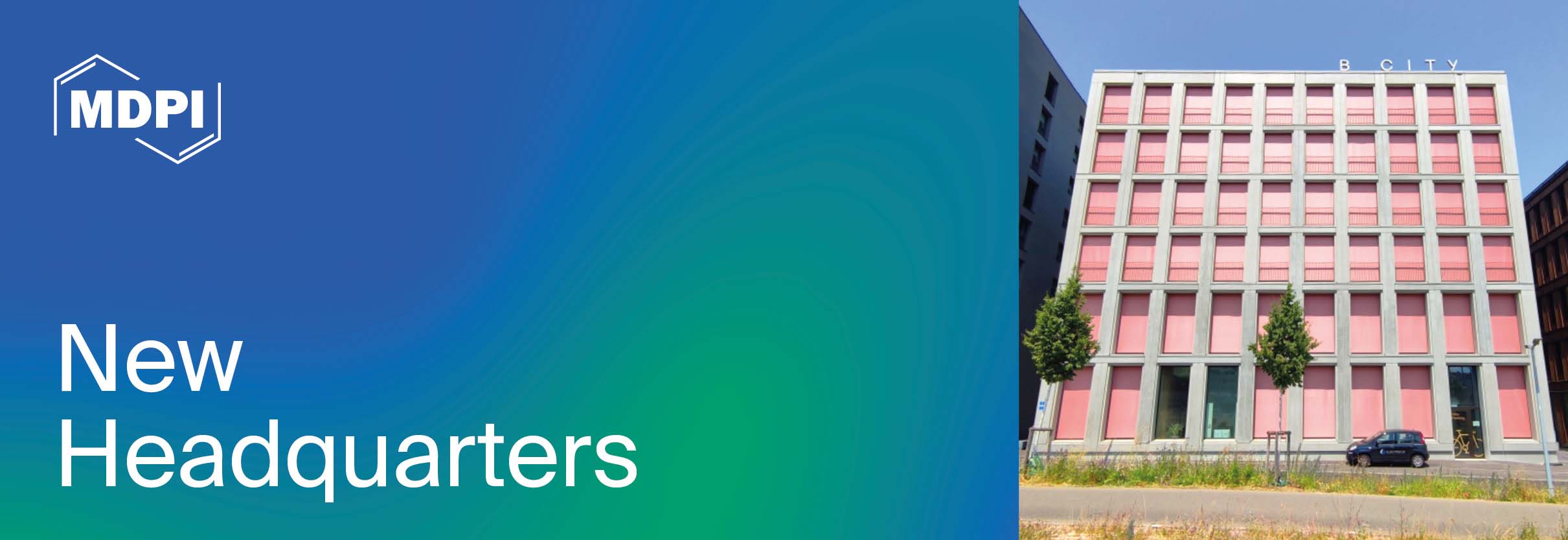
MDPI Moves to New Headquarters in Basel, Switzerland

I am excited to share that MDPI has moved to a new state-of-the-art office space in Basel, Switzerland. This move consolidates our operations by bringing together our two previously separated Basel offices into one central location.
We are always growing our talent pool and encourage you to view our Careers Page for the positions available in Basel and across our offices.
New Address: Grosspeteranlage 5, CH-4052 Basel, Switzerland
Effective Date: 1 July 2024
This new chapter in our company’s journey is designed to continue our mission of positioning MDPI as a leader in Open Access (OA) publishing, highlighting our commitment to making scholarly research accessible to everyone.

Boasting modern amenities, improved meeting and event spaces designed to support our growing needs, the new location provides a more collaborative and efficient working environment for our employees. The location offers convenient accessibility to public transportation and is situated near the Basel SBB railway station, with a variety of nearby services and amenities.
In fact, I can see the trains right outside of my window as I write these lines!
This move marks an exciting milestone in MDPI’s development, and I am confident that the new headquarters will serve as an inspiring and productive space for everyone. We also very much look forward to welcoming visitors here. You can read more about MDPI's history here.
“This new chapter continues our mission of positioning MDPI as a leader in OA publishing”
For Those New to MDPI
A pioneer in scholarly, Open Access publishing, MDPI has supported academic communities since 1996. MDPI is leading the transition to Open Science by making a greater proportion of the research conducted worldwide free and accessible to everyone. To date, over 3.5 million researchers have entrusted MDPI with publishing their scientific discoveries. MDPI’s editorial process is bolstered by a network of dedicated reviewers, a team of 6,000 professional, well-trained staff members, and an in-house article submission platform designed to ensure efficient processes within its 440 fully Open Access titles. MDPI supports more than 800 academic institutions worldwide, helping them adhere to national mandates while facilitating authors’ publication in fully compliant (CC BY) Open Access journals.
Impactful Research
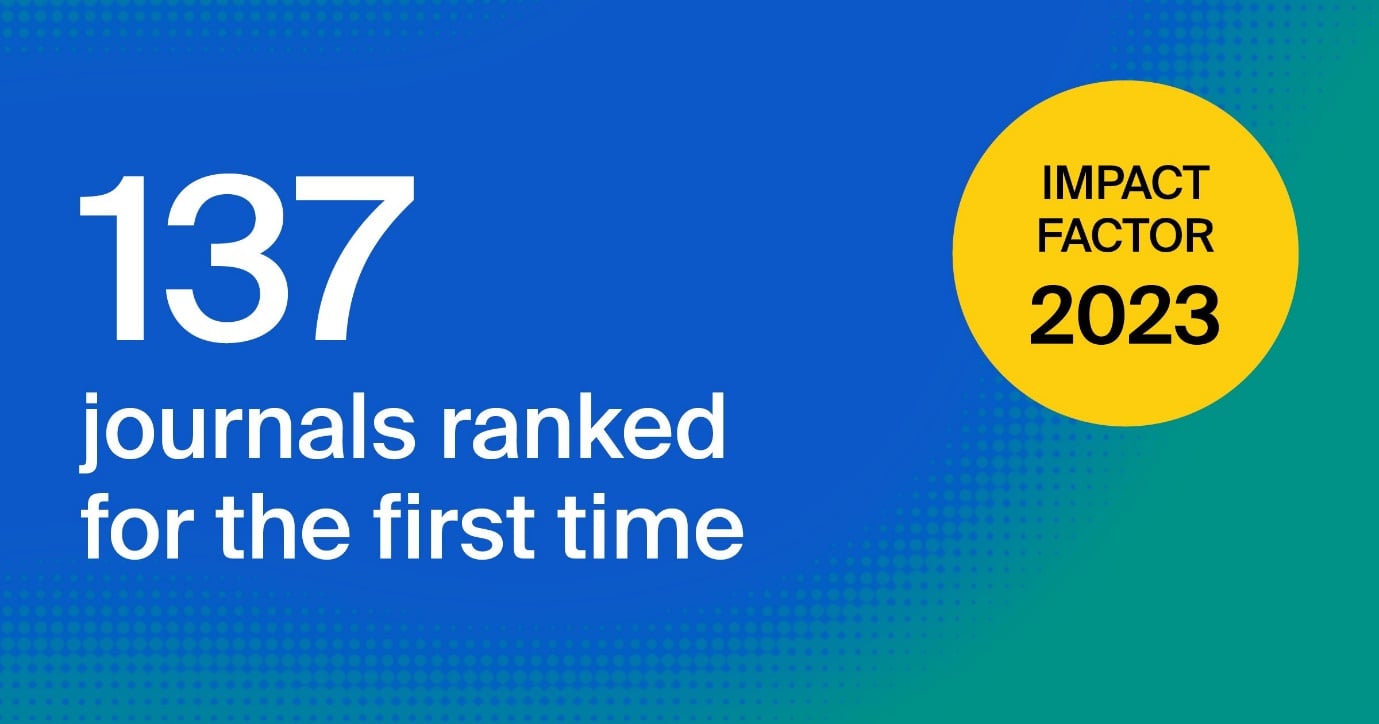
New and Emerging MDPI Journals Making an Immediate Impact
Unpacking some of the Impact Factor updates from the June CEO Letter, I wanted to dive a little deeper into the 137 MDPI journals which received Impact Factor for the first time.
Academic authors highly value efficient publishing processes, robust editorial support, and the opportunity to publish in high-impact journals. We are proud that our newly launched journals typically achieve coverage in the Emerging Sources Citation Index (ESCI) of the Web of Science within just a few years, with a median time of only three years from release to inclusion.
As part of our commitment to advancing academic research and providing high-quality OA publishing, we actively seek new research areas to expand our portfolio of journals. We have a proven track record of successfully establishing new journals.
Our dedicated teams excel in fostering dynamic editorial boards and working closely with Editors-in-Chief (EiC) to define the precise scope and focus of each new journal. Our expertise extends to collaborating with indexing services, ensuring that our journals comply with best practices and are indexed promptly in all relevant databases.
Emerging Titles Ranked for the First Time
Our commitment to excellence is reflected in the annual impact metrics released this past June. The latest edition of the Journal Citation Reports (JCR) showcases the integration of journals from the ESCI in the new unified category rankings, providing a simplified and more complete view of all journals within each subject category, including newly established titles.
Out of 137 new and developing MDPI journals ranked in the 2024 release, 79 are in the top half (Q1 or Q2) of their categories. Here is a breakdown of the number of MDPI’s ESCI-indexed journals by quartile in the JCR:
| Quartile | No. of journals |
| Q1 | 17 (12.4%) |
| Q2 | 62 (45.3%) |
| Q3 | 43 (31.4%) |
| Q4 | 15 (10.9%) |
| Not ranked (humanities-related journals) | 2 |
These rankings highlight our success in rapidly establishing high-impact new journals. Among those that made it directly into the top 25% of their category are the International Journal of Neonatal Screening, Journal of Xenobiotics, Polysaccharides, Smart Cities, and thirteen other journals.
You can browse MDPI journals by Indexing. Simply visit our Journals page and select from the list of Indexing bodies in the top left-hand corner.
Inside MDPI

MDPI Corporate Marketing Strategy and Team Meeting 2024
In July, I hosted the annual Corporate Marketing strategy and team-building activity with 15 of our team members.
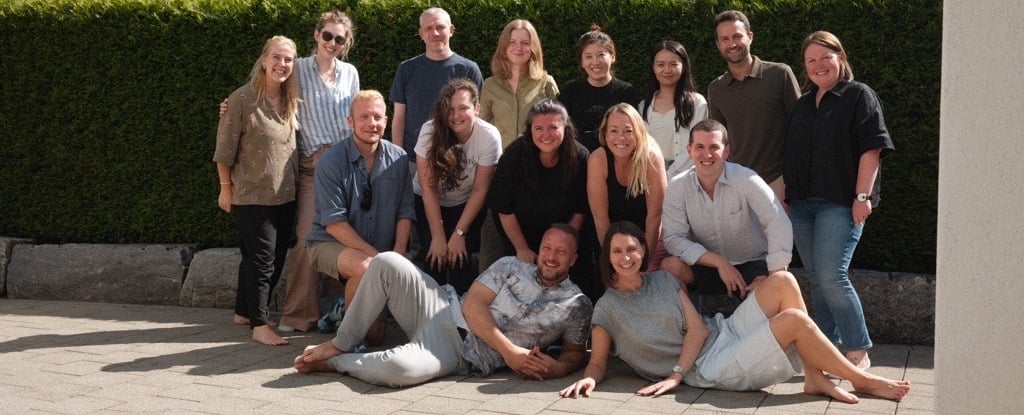
The aim was to align the Corporate Marketing strategy with MDPI's goal of becoming the world's most trusted OA publisher. While we provide a high-level publishing experience for our authors, as seen from our surveys, we need to keep building on our transparent and open communication to foster trust within the scholarly community and continue enhancing our reputation.
The Corporate Marketing team plays an important role as the mouthpiece for all our major activities within MDPI, especially those that model what it means to be a trusted partner. The purpose of the strategy meeting was to develop a feeling of trust in one another and an understanding of how to inspire trust in the stakeholders with whom we interact.
“We need to keep building on our transparent and open communication to foster trust within the scholarly community”

We conducted a set of activities to facilitate that sense of mutual trust and trustworthiness. Examples of some activities we worked on during this strategy-building event include:
- Exploring what trust means
- ‘Letter to self’
- ‘The brand I most trust’
- Most Trusted Academic Publisher
- ‘The brand I would like MDPI to become’
- ‘The 2029 MDPI Annual Report’
- Voice of Customer and Share of Voice – survey/data update on MDPI Brand Experience and Brand Perception
- Integrate Trust-Based Objective into Marketing Plan
- ‘Becoming the MDPI experience’
- ‘Trusting the next steps’
While two days is not enough to finalize a marketing strategy, it is sufficient to get everyone who attended into the mindset of the direction in which we are working. From here, we will develop a program with next steps on main projects, update communications, and collaborate with team leads to incorporate this approach into our work going forward.
As a marketing team, we can communicate our messages, but trust has to be built at every touchpoint in the stakeholder journey. Just talking about it isn’t enough. We need to be about it. That’s a role each of us plays, from editorial to IT, from marketing to HR. We must build trust from the inside out. It starts with each manager and resonates out via every team member.
As a company, our goal is to give all stakeholders with whom we interact – whether internal or external – the experience of working with an organization it can trust.
Coming Together for Science
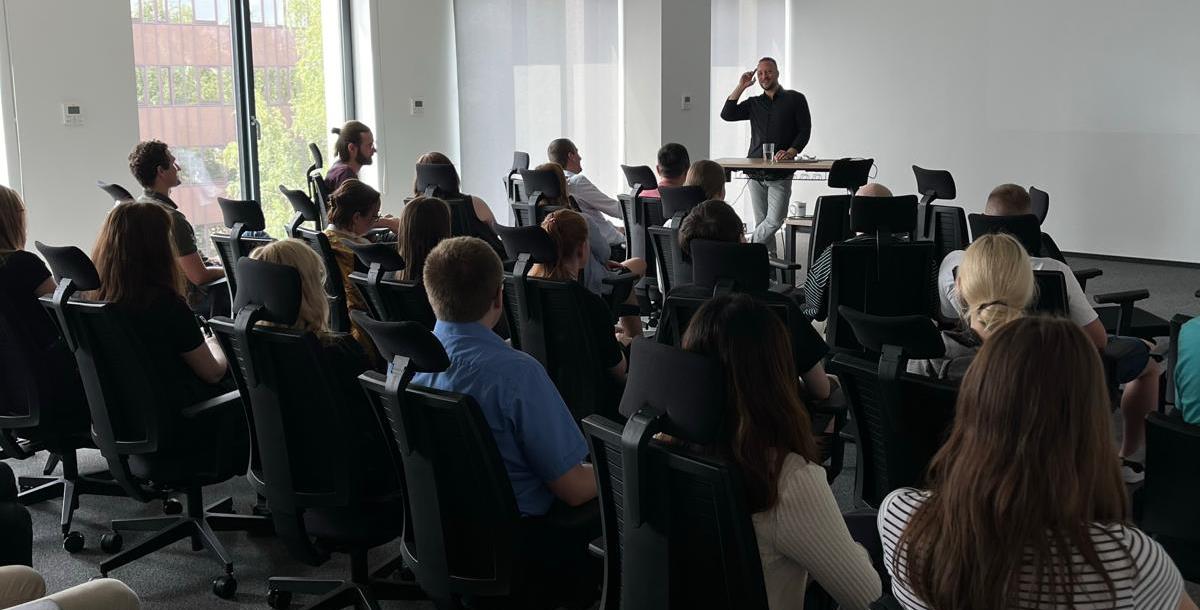
MDPI in Poland: Krakow Office
In July, I had the pleasure of visiting our Krakow office, following my recent trip to Warsaw to meet with the Polish Ministry of Science and Higher Education.

During these visits, I prioritized meeting with our Office Manager, Editorial Director, Group Leads, and members from various teams, including editorial, production, marketing, and journal relationship specialists, to understand their roles and current challenges. Instead of a formal presentation, I opted for an open discussion, sharing updates from headquarters to engage with colleagues in a more personal way.
Our Krakow office has many things to be proud of, including a large number of PhD colleagues (over a third of its staff holds a PhD degree). Krakow provides an opportunity for expanding beyond the 100 colleagues we currently have, by adding new hires in departments including editorial, production and marketing, among others.
About our Krakow office
- Opened in 2020
- 99 staff members as at 1 August 2024
- Main Departments include Editorial, Production, English Department, JRS, PR
Our Krakow office participates in international conferences, conducts author trainings and scholar visits, and engages in local market outreach. The office is also a member of the Polish Chamber of Commerce for High Technology (IZTECH) and is working on expanding its local engagement.
Krakow is the second-largest city in Poland, with a population of about 800,000. It also has a large student population of around 128,000, with seven universities. This means that roughly one in every eight residents is a student.
Poland and MDPI

Poland is a crucial market for MDPI. From 2020 to June 2024, Poland ranked 7th in submissions and 5th in publications for MDPI research articles. As at 31 July 2024, Poland ranks 7th in total MDPI publications, with approximately 70,000 research papers.
Between 2020 and June 2024, 61,500 authors from Poland published with MDPI. As at 30 June 2024, there are 1,205 active Editorial Board Members (EBMs) from Poland, with 661 EBMs (55% of the total) having an H-index over 25.
We also have four Editors-in-Chief (EiC) from Poland leading our journals: Coatings, Venereology, Advances in Respiratory Medicine, and Limnological Review, along with six Section EiC.
In 2023, we received approximately 21,000 submissions from Polish-affiliated authors, of which 12,032 were published.
“Poland is a crucial market for MDPI”
Meeting with Ministry of Education

On 22 July, we visited Warsaw to meet with the Polish Ministry of Science and Higher Education.
We were pleased to learn that they are strong supporters of the OA publishing model and value MDPI’s approach to the peer-review process, including our high ethical standards for quality control.
In 2023 Polish authors predominantly published their papers in OA, with MDPI holding the largest market share in OA publications within the country.
Our commitment to collaborating with Polish institutions is evident through our 33 Institutional Open Access Program (IOAP) agreements with prestigious institutions such as the University of Warsaw, the University of Wroclaw, the Jagiellonian University, and Gdańsk University of Technology. Through IOAP discounts, a healthy waiver rate, and our peer-review voucher system, we provide the Polish scholarly community with significant savings in OA publishing. The Minister greatly appreciated these efforts and our commitment to offsetting some of the APC costs.
We discussed industry concerns about the threat of papermills and presented the preventive measures MDPI has in place to mitigate this risk and uphold high ethical standards. We informed them of our commitment to combating papermills, including our involvement with United2Act and the STM Research Integrity Hub, as well as our efforts to expand our research integrity team and explore proactive measures.
Closing Thoughts

MDPI Thought Leadership Op-ed on Open Access is Now Live on Politico
I am pleased to share that our thought leadership Op-ed piece on Open Access (OA) is now live on Politico. This is a nice push for continued influence and support of OA among policymakers and industry leaders.
Why Politico?
Politico's reputation as a highly credible and influential news platform makes it an important venue to reach key opinion leaders (KOL) from academia, policymakers, and thought leaders from many industries. This visibility helps promote the OA philosophy.
Open Access: A Moral Imperative for Progress
In this piece, I discuss the necessity of making scientific research freely available to all. I argue that publicly funded research should be publicly accessible, highlighting how OA democratizes scientific knowledge, accelerates research availability, and fosters collaboration.
“Open Access is a fundamental right for all citizens”
Democratizing scientific communication
The impulse to democratize scientific communication is nothing new. OA may seem like a recent innovation, but its principles have historical roots traceable to Europe in the 15th century. Just as the printing revolution accelerated the dissemination of new ideas, OA publishing unlocks new scientific insights that would otherwise only be accessible to a few.
Benefits for scholars: amplifying impact through Open Access
Authors publishing in an OA journal can expect more citations of their work, increasing its potential impact. Research findings that are freely available are more likely to be cited than those hidden behind a paywall. Freedom of access greatly increases the potential audience for each paper, fostering a sense of community among researchers worldwide. Heightened visibility can attract prospective collaborators and employers for young scientists. At MDPI, we believe that all these factors can only accelerate the advance of science. Additionally, authors retain copyright in their work instead of signing it away, permitting broader dissemination under Creative Commons licenses and increasing its capacity for impact.
The moral imperative
OA is not just a matter of scientific policy; it is a fundamental right for all citizens and a prerequisite for a brighter, more informed future. Publicly funded research should be a top priority, and I am pleased to see policy moving in this direction. Our capacity to generate transformative scientific insights has to be democratized. The question today is no longer whether we can afford to embrace OA; rather, it is whether we can afford not to.
Chief Executive Officer
MDPI AG




